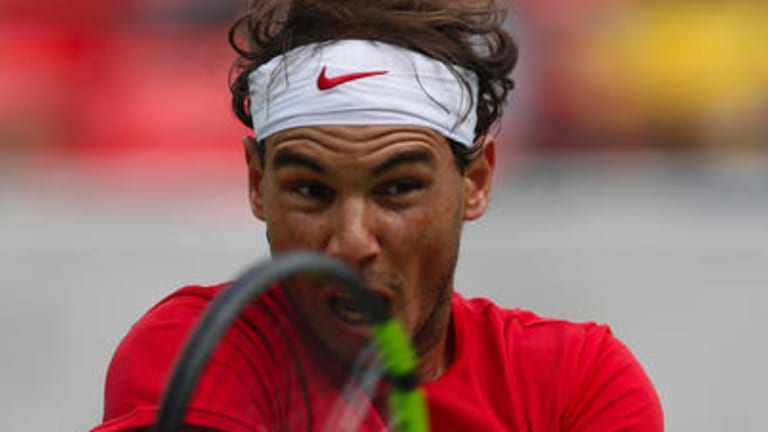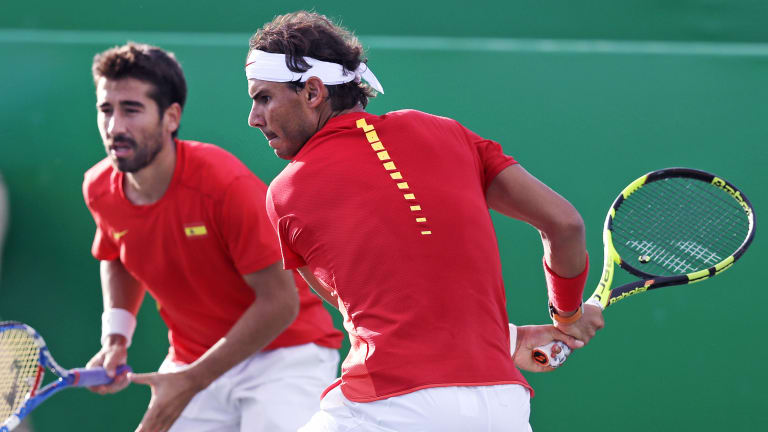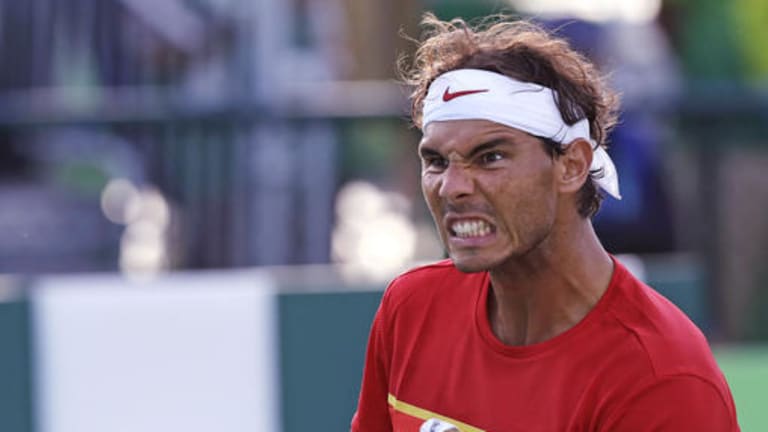Rafa injured his left wrist in the spring, and he said this week that if this were any tournament other than the Olympics, he wouldn’t be playing. But for most of his match against Simon, he hit the ball cleanly; you wouldn’t know that before this week, he hadn’t a played an official match since the French Open in late May. I would even say that Rafa’s backhand is better now than it was when he was No. 1 in the world. Over the last two years, he has logged a lot of practice time trying to reach the Top 5 again, and it has made that wing more reliable.
Rafa has also said that, because he’s just coming back from injury, he’s not feeling the pressure of expectations; he’s just here to enjoy the Olympic experience. It's true, he has definitely given off a lot of positive energy in Rio, both in his play and his interactions with fans. And until the end of the first set today, I was willing to believe that he wasn’t feeling much pressure. But I was wrong. No matter how low your expectations may be, there's no avoiding the nerves at a once-every-four-year event like this. For Rafa, the pressure hit him when he was up 5-1 in the first-set tiebreaker.
First, he pushed an easy backhand wide to make it 5-2; then he hit a routine forehand long to make 5-3; then he hit another routine forehand long to make it 5-4; then he slugged a backhand into the net to make it 5-5. During that stretch, Rafa’s swing became noticeably shorter and nervier. But once he had given up the lead, he relaxed a bit and played two strong points. With the first set in his pocket, Rafa relaxed even more in the second.
Next up for Nadal is Brazil’s Thomaz Bellucci. They’ve played five times, and Rafa hasn’t lost a set. But the pro-Bellucci crowd in Rio should make it a must-watch anyway.
Doubles: Nadal & Marc Lopez d. Daniel Nestor & Vasek Pospisil, 7-6 (1), 7-6 (4)
In a less-than-Olympian piece of thinking, the Rio schedulers somehow put this semifinal on Court 3, which doesn't have Hawk-Eye. Nadal asked that it be moved, that a match of such import—the winner would play for the gold medal—shouldn’t be without replay. His concern proved to be prescient. Three close calls would go against the Canadians, none of which could be appealed. As Nestor walked off the court after it was over, he barked at the chair umpire, “I’ll shake your hand, but that was a disgrace.”
You might think that, with his dirtballer’s game, Rafa would be lost on a doubles court. You would be wrong. In this format, he’s able to magnify his strengths—pace and spin—and hide what should be his weaknesses—the serve and volley. Today, as he usually is in doubles, Nadal was the wild card, the monkey wrench, the spanner in the other team’s works.


